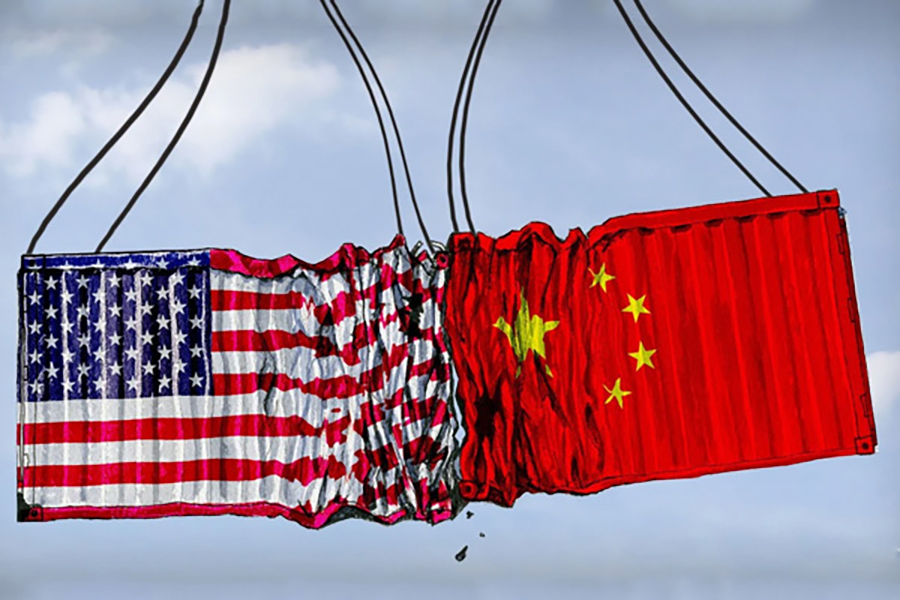India and the FTAs: Heralding hope and harnessing opportunities
There is a paradigm shift in the global trade architecture thanks to the rising number of free trade agreements (FTAs). FTAs are of little use unless they serve their purposes well. Therefore, a careful and calibrated approach is required for having a fruitful FTA.
- India signed a Comprehensive Economic Partnership Agreement (CEPA) with the UAE in a record 88 days and also signed an Economic Cooperation Trade Agreement (ECTA) with Australia, which is well poised to become a full- fledged FTA by the end of 2022.
- But, it needs to be understood that FTAs are not a zero-sum game. FTAs are of little use unless they serve their purposes well. Therefore, a careful and calibrated approach is required for having a fruitful FTA.
- The road ahead lies in how well the Indian business entities equip themselves to grab a pie in the UAE and the Australian markets where they will face stiff competition from countries like China, Japan, Korea, EU etc. already having or negotiating an FTA with Australia or the UAE.
- Indian businesses must address concerns such as data protection, compliance requirements, & tax regime to emerge as a global leader in the market.

Thanks to the meteoric rise in the number of FTAs being signed globally, there is a paradigm shift in the global trade architecture. India, too, can’t afford to stay away for too long from this shift. Early 2022, for example, saw a change in stance of India’s approach towards the FTAs. India signed a Comprehensive Economic Partnership Agreement (CEPA) with the UAE in a record 88 days and also signed an Economic Cooperation Trade Agreement (ECTA) with Australia, which is well poised to become a full- fledged FTA by the end of 2022.
Agreements concluded with Australia and the UAE hold great strategic significance too. Both India and Australia are part of the QUAD and are partners in the Supply Chain Resilience Initiative (SCRI). On the other hand, FTA with UAE would facilitate India’s deeper engagement with the Gulf-Cooperation Council (GCC) which is a huge potential market for India’s manufactured goods and can also cater to the ever-increasing needs of energy sector in India. Undoubtedly, these agreements are a significant positive stride, showing promise for constructive engagements with India’s trading partners and gives a glimmer of hope to expand the horizon of business operating across different sectors.
But, it needs to be understood that FTAs are not a zero-sum game. FTAs are of little use unless they serve their purposes well. A classic example would be India’s Comprehensive Economic Partnership Agreement with Japan, where despite having zero tariffs India’s apparel exports to Japan significantly went down in comparison with its competing economies like China, Vietnam and Bangladesh. Therefore, a careful and calibrated approach is required for having a fruitful FTA.
Harnessing the Opportunity
The road ahead lies in how well the Indian business entities equip themselves to grab a pie in the UAE and the Australian markets where they will face stiff competition from countries like China, Japan, Korea, EU etc. already having or negotiating an FTA with Australia or the UAE. Most of the write-ups or opinion pieces have nicely put forth sectors and the areas which will benefit Indian businesses the most. However, to tap those sectors and reap optimum benefit out of it, equally important is to have a holistic understanding of some of the key issues, their legal and the regulatory framework, and compliance requirements which exists in those countries.
Indian businesses can look at few things mentioned below which can pave their way to emerge as a global leader in the market.
-
- Requirements related to data protection: Data is now considered as one of the most valuable assets of the 21st century, having an infinite potential to make or break one’s game. Emergence of Artificial Intelligence (AI) has given a huge advantage to companies possessing data mines when it comes to finding potential market, identifying sectors, consumer base etc. Given the importance of data, before starting a business it is imperative to understand some of its key elements like requirements related to data localization, cross-border flow of data, method of collection and storage, sharing and ownership of data, right to be forgotten etc. among several others.
- Compliance Requirements: Any business which seeks to operate within a particular country is bound to comply with the catena of regulatory requirements. Prior knowledge about various compliances helps to mitigate the future risk of non-compliance or violation of existing laws in that country which might result in penalties or future sanctions.
- Tax Regime: Not only important for compliance, rather an eye for detail would also offer knowledge on benefits and enable to grab opportunities by preparing a better strategy e.g. After ECTA Australia is contemplating to amend its domestic laws to stop taxing offshore income of Indian firms providing technical services there. While UAE on the other hand will soon cease to be a tax-free country for business and it has introduced 9% Corporate Tax on business profits from June, 2023.
- Foreign Investment: A prior brainstorming over sector specific requirements, available investment routes etc. would do no harm to businesses seeking to operate in a particular country. It saves from getting stuck between the winds and water while carrying out any business in that country. For example, recently concluded India-Australia ECTA is silent upon protection of investors when it comes to expropriation, ensuring fair and equitable treatment and the investor’s right to pursue claims against the state for any breach of the treaty obligations.
- Environment: Of late but now countries have started giving serious consideration to environment. Reducing carbon emissions and fighting climate change has been talk of the town. It should not come as a surprise if we see more stringent rules and laws related to compliance with environmental standards in various countries in a bid to tackle climate change.
Last, but not the least, companies should be following on the famous saying “before you enter the market you must know where the exit lies”. Many businesses before they blossom often face abrupt failures. Therefore, it becomes very crucial for businesses which are eyeing to enter into these markets to be well versed with all the legal and regulatory requirements related to winding up or taking an exit if their business fails or simply it can’t be carried out further.
To conclude, a nuanced understanding of the aforesaid would act an impetus for businesses desirous of expanding their footprints beyond their borders to hit the bull’s eye.
Presently working as a Senior Research Fellow (Legal) at Department of Commerce, Ministry of Commerce and Industry, Government of India. Views expressed are personal.













Well articulated. Very lucidly explained.
Well written..keep it up..
Very well written. Highlighting areas which are less talked about yet needs attention.
Great read. Very aptly written.